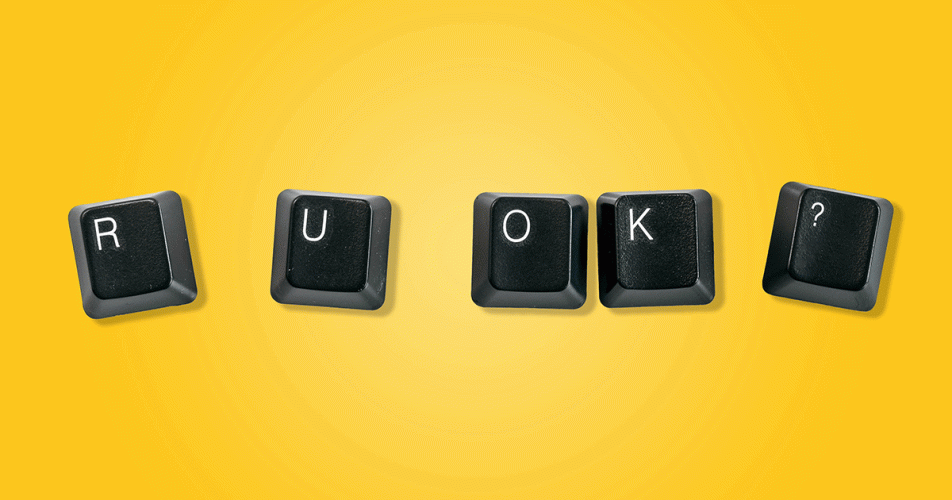R U OK? conversation packs
R U OK? Day is on Thursday 14 September and reminds everyone that it is ok to ask everyone on a daily basis, R U OK? and to support those who are struggling. The day encourages open and honest discussion around mental health and social isolation and the negative consequences such as suicide.

Based on data collected by Safe Work Australia, psychological injuries are rising in numbers and severity. National data showed a 28 per cent increase in worker’s compensation claims for mental health conditions between 2007-08 and 2019-20. In addition, time off work in these cases is almost four times longer than for other types of injuries. Statistics identified the health care and social assistance industry as being one of the top six industries in which workers face the highest rate of harm. This is based on the most recent claims data, highlighting that psychological hazard, including workplace harassment and bullying, occur more frequently in health care and social assistance sectors. The most common psychological injuries in these sectors include:
- work pressure
- harassment and bullying
- occupational violence
- other mental stress factors.
Some of the psychosocial hazards that can occur at work include but are not limited to the following:
- unachievable job demands
- poor supervisor support
- harmful behaviour
- poor organisational justice and change management
- lack of role clarity
The Work Health and Safety Act 2011 states everyone has a duty to keep the workplace safe. People Conducting a Business Undertaking (PCBU) to ensure the health and safety of their workers, so far as is reasonably practicable. Health is defined as both physical and psychological.
Psychologically healthy workplaces, as far as reasonably practicable, must do whatever they can to eliminate psychological health and safety risks arising from the practice as a business or undertaking.
Duties of a worker, which includes employees and independent contractors, while at work must take reasonable care:
- for their own psychological and physical health and safety and
- that their actions or omissions do not adversely affect the health and safety of other persons
People at Work state that poorly managed psychosocial hazards and factors can result in stress job burnout and mental ill health. Specifically high levels of job demand, and low levels of job resources and support increase the risk of psychological harm.
The Workplace Relations Team is proudly supporting R U OK? with the sale of Conversations Packs with the aim of assisting practices with practical tools to normalise mental health conversations.
The packs are selling now and include:
- Instructions to get the most out of the pack.
- Conversation Guide – 12 steps to consider when having a group discussion on mental health.
- 1:1 Guide for individual conversations, a checklist, and supportive phrases
- Meeting Kit - quick check-in activities to incorporate with the conversation guide or for different scenarios such as after an incident.
- Mental Health Planner - to keep the conversation alive throughout the year, we have highlighted mental health awareness day/s each month.
- Resource Guide - resources to support yourself and your employees.